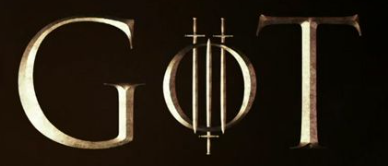COVERING YOUR TRACKS
How concerned are you about your privacy and protection on the Internet? Whether as a company, a professional, or a private individual, we have all come to some kind of a comfort level with our risk on the Web. Unless you choose to be a total recluse, which is very hard to do for most of us, then you must assume some level of exposure online.
For those who want to cover their tracks to the maximum, the nonprofit Tor Project might be your solution. The group’s Web site summarizes the opportunity (“Tor Overview: The Future of Tor”):
“ Ongoing trends in law, policy, and technology threaten anonymity as never before, undermining our ability to speak and read freely online. These trends also undermine national security and critical infrastructure by making communication among individuals, organizations, corporations, and governments more vulnerable to analysis. Each new user and relay [a ‘relay’ is a PC whose owner has volunteered its use to be part of the Tor network] provides additional diversity, enhancing Tor’s ability to put control over your security and privacy back into your hands. ”
Started as a US government project, the Tor Project has written software called, “the onion router” (Tor). Tor enables a person to use the Internet with virtually total anonymity. Precisely because of what the freely available Tor does, it is used by a wide variety of people as Dune Lawrence explains: (“Spy Vs. Spy” Bloomberg Businessweek , 2/3/14–2/9/14, pp. 42–47):
“ Tor has been adopted by both agitators for liberty and criminals. It sends chat messages, Google searches, purchase orders, or e-mails on a winding path through multiple computers, concealing activities as the layers of an onion cover its core, encrypting the source at each step to hide where one is and where one wants to go. Some 5,000 computers around the world, volunteered by their owners, serve as potential hop points in the path, obscuring requests for a new page or chat. . . . Its users are global, from Iranian activists who eluded government censors . . . to Chinese citizens who regularly use it to get around the country’s Great Firewall and its blocks on everything from Facebook to the New York Times. ” (p. 44)
Tor Project’s executive director since 2009 is Andrew Lewman. He originally became involved with Tor Project as a code contributor several years earlier. His inspiration was working for an international company in China that increasingly encountered Chinese government restrictions on the company’s ability to access the Internet.
Technologically, I think Tor is a marvelous piece of software. Like anything else in the world, both good people and bad people will use it. On the dark or controversial side, just think child pornography, stolen credit card data, or Edward Snowden. On the positive side, just think battered spouses escaping their abusers, people avoiding cyberstalkers, companies protecting sensitive strategy and patent research, or law-abiding citizens who want to protect their privacy.
The Tor Project focuses on making the software freely available. It cannot control how it is used. Other entities of our society will strive to hold users accountable. Meanwhile, Lewman maintains his consistent passion for Tor’s simple philosophy and effectiveness:
“ Lewman’s message is the same, whether he’s talking to teenagers, Fortune 500 companies, or the U.S. Drug Enforcement Agency . . . : Everything on the Internet is tracked and recorded, and you might not want that. ” (p. 46)










